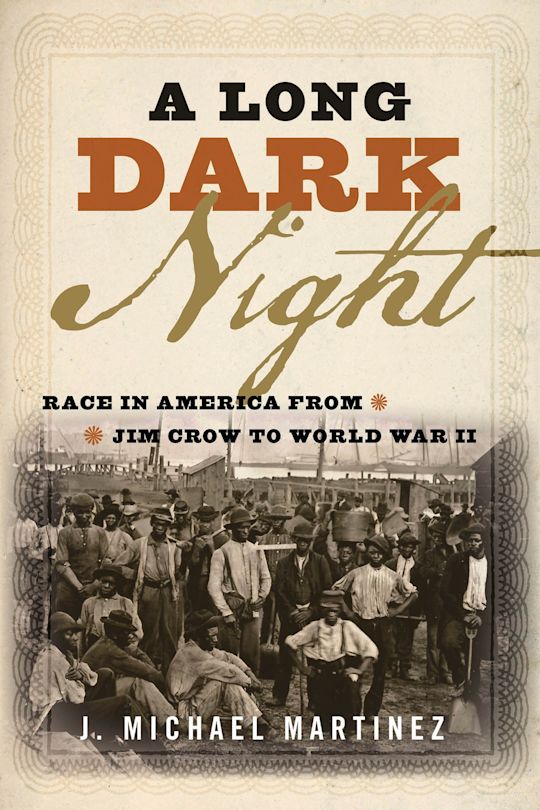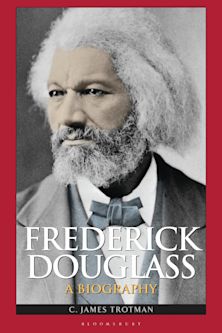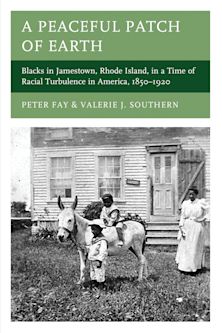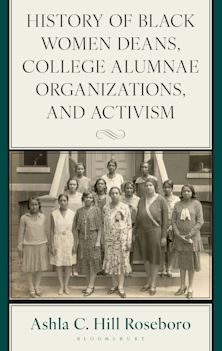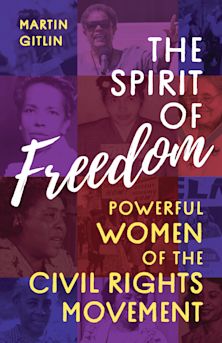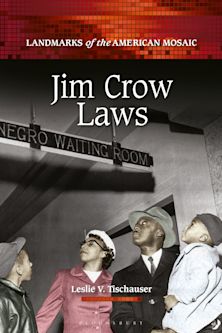- Home
- ACADEMIC
- History
- Black History
- A Long Dark Night
A Long Dark Night
Race in America from Jim Crow to World War II
A Long Dark Night
Race in America from Jim Crow to World War II
For information on how we process your data, read our Privacy Policy
Thank you. We will email you when this book is available to order
You must sign in to add this item to your wishlist. Please sign in or create an account
Description
For a brief time following the end of the U.S. Civil War, American political leaders had an opportunity—slim, to be sure, but not beyond the realm of possibility—to remake society so that black Americans and other persons of color could enjoy equal opportunity in civil and political life. It was not to be. With each passing year after the war—and especially after Reconstruction ended during the 1870s—American society witnessed the evolution of a new white republic as national leaders abandoned the promise of Reconstruction and justified their racial biases based on political, economic, social, and religious values that supplanted the old North-South/slavery-abolitionist schism of the antebellum era.
A Long Dark Night provides a sweeping history of this too often overlooked period of African American history that followed the collapse of Reconstruction—from the beginnings of legal segregation through the end of World War II. Michael J. Martinez argues that the 1880s ushered in the dark night of the American Negro—a night so dark and so long that the better part of a century would elapse before sunlight broke through. Combining both a “top down” perspective on crucial political issues and public policy decisions as well as a “bottom up” discussion of the lives of black and white Americans between the 1880s and the 1940s, A Long Dark Night will be of interest to all readers seeking to better understand this crucial era that continues to resonate throughout American life today.
Table of Contents
Introduction and Acknowledgments
Prologue: Race in America: ‘‘There Is Not a Black America and a White America and Latino America and Asian America’’
PART I: A Child of Misery
1 The Legacy of Reconstruction
2 Jumpin’ Jim Crow and Legal Segregation
3 Racial Violence and the Plight of the Freedmen
PART II: I’m Sometimes Up and Sometimes Down
4 The Rise of the Populist Movement
5 Southern Populism
6 Washington versus Du Bois
PART III: He’s Gone on High to Prepare a Place
7 The Great Migration
8 A Nadir of Race Relations
9 The Rise of a New Black Culture
10 Southern Justice, a Depression, and a War
Epilogue: The Postwar American Landscape: ‘‘White Prejudice and Negro Standards Thus Mutually ‘Cause’ Each Other’’
Notes
References
Index
About the Author
Product details
| Published | Apr 14 2016 |
|---|---|
| Format | Ebook (Epub & Mobi) |
| Edition | 1st |
| Extent | 420 |
| ISBN | 9781442259966 |
| Imprint | Rowman & Littlefield |
| Illustrations | 30 b/w illustrations |
| Publisher | Bloomsbury Publishing |
About the contributors
Reviews
-
Lawyer and historian Martinez (Terrorist Attacks on American Soil: From the Civil War Era to the Present) tackles the subject of race through the decades following Reconstruction. Beginning with an account of the federal government's role in legitimizing discrimination under law, Martinez then moves onto the violent repression of African-American rights, the Southern Populist movements and their white architects, and a once-over survey of the Booker T. Washington and W.E.B. Du Bois dichotomy. The Great Migration follows, and the book slides into a cultural perspective with diminished attention to the role of law as it attends to popular racist images of African-Americans in cartoons, advertisements, and film. (For example, by focusing on D.W. Griffith's fictionalization of the Ku Klux Klan in The Birth of a Nation, Martinez elides the Klan's real-life deeds.) Martinez hits historical landmarks (e.g., Marcus Garvey, the Tuskegee Airmen) and is particularly informative when delving into juridical processes (e.g., Plessy v. Ferguson, the failed attempt to achieve anti-lynching legislation). Nevertheless, there remains a hit-or-miss quality to this ambitious undertaking, which seeks to merge legal, political, social, and cultural history into an instructive and well-meaning corrective to a lacuna in popular history.
Publishers Weekly
-
Martinez presents a nuanced and balanced account of political and social history of the racial struggle between black and white America during the eight decades following the Civil War. His even-handed and inclusive approach tells a story that is not as unremittingly bleak as the title would suggest. His account of southern populism in the early 20th century, for example, includes the neo-Bourbons, those white politicians who opposed the Klan at a time when the KKK was thriving. Martinez’s story ends with the Supreme Court’s invalidation of restrictive covenants and Truman’s executive orders integrating the military and requiring fair employment practices in the Federal government. By reminding us of these hopeful developments, Martinez presents a complete picture, presaging hopeful developments in the civil rights era that follows. He gives readers enough details so they can see the entire forest with its variety of trees without bogging readers down examining minutiae.
George Schedler, Southern Illinois University
-
A masterful synthesis, this book explores in fine detail the political, social, economic, cultural, and legal forces behind issues of African American agency in the midst of white supremacy. Grappling with the irony of American ideals and American race relations from Reconstruction through World War II, Martinez delivers a crucial context for understanding the prelude to the civil rights movement. He illuminates the complexity and tension of the black experience and grapples with profound questions of racial discrimination. This is a welcome and important contribution to American history, thoughtful, comprehensive, and engaging.
Orville Vernon Burton, Clemson University
-
A Long Dark Night is a highly readable and well-researched survey of U.S. race relations from the Civil War to World War II – a complex epoch that every American needs to better understand.
Cameron McWhirter, author of Red Summer: the Summer of 1919 and the Awakening of Black America

ONLINE RESOURCES
Bloomsbury Collections
This book is available on Bloomsbury Collections where your library has access.









